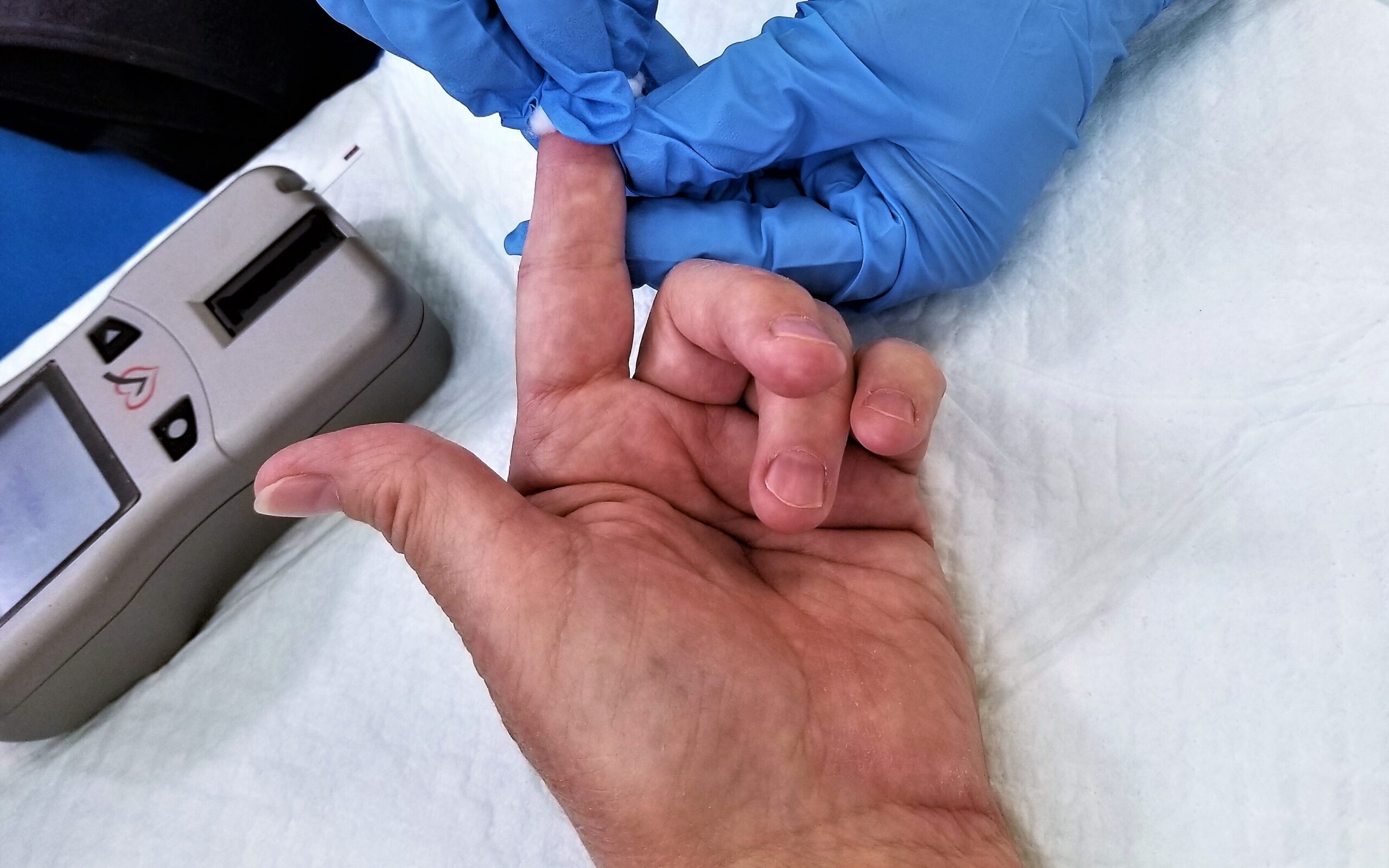Family Health History: Preventing Medical Problems with a Health Risk Assessment
Feb 24, 2022
A family health history is a record of health information about a person and their close relatives. A complete record includes information from at least three generations of relatives, including children, siblings, parents, aunts & uncles, nieces & nephews, grandparents, and cousins.
So, why is knowing your family health history important?
Families have similar genetic backgrounds, and often similar environments and lifestyles. Together, these factors can give clues to your doctor or health provider about conditions that may run in your family. By recognizing health patterns among relatives, healthcare professionals can determine whether an individual, family members, or future generations may be at an increased risk of developing a particular condition.
Knowing your family health history allows you to take steps with preventative care to reduce your risk. For example: When people are at an increased risk of certain cancers, healthcare professionals may recommend more frequent screening (such as mammography or colonoscopy) starting at an earlier age. Healthcare providers may also encourage regular checkups or testing for people with a condition that runs in their family.
The easiest way to get information about family health history is to talk to relatives about their health and ask them questions. Have they had any health problems, and when did they occur? When possible, getting medical records and other documents (such as obituaries and death certificates) can help complete a family health history. It is important to keep this information up-to-date and to share it with a healthcare professional regularly as part of your family health risk assessment.
It is important to note that while a family health history provides information about the risk of specific health concerns, having relatives with a condition does not mean that an individual will develop that condition. As well, a person with no family history of a disorder may still be at risk of developing a disorder.
Family Health Risk Factors
Common Family Health Issues
When people think about what their family hands down to them over the generations, they may think of heirlooms like a piece of jewelry or furniture that belonged to past generations. Your family health history is like that, except things are handed down through your family’s gene pool. Genetics are what give you your father’s nose or your mother’s eyes, but sometimes you pick up some unwanted gifts, such as their blood pressure issues or diabetes. This is why it is important to conduct a family health history assessment to receive the appropriate care.
Cardiovascular Disease, High Blood Pressure, and High Cholesterol
Cardiovascular disease is the number one cause of death in the United States. The term “heart disease” is a broad term that refers to a variety of conditions such as heart failure, heart attack, stroke, and coronary artery disease.
While genetics can play a factor in heart disease, it is also likely that people with a family history of heart disease share common environments and other potential factors that increase their risk. There are many other factors that may lead to high blood pressure, such as being overweight, smoking, or having diabetes. It is possible to manage your high blood pressure through lifestyle changes such as maintaining a healthy diet, reducing sodium intake, becoming physically active, reducing stress, and taking medication.
According to the CDC, 31% of adults have high cholesterol. High cholesterol can lead to an increased chance of heart disease if not properly managed and if you haven’t taken proper care of your body. High cholesterol can be managed with healthier diet choices and exercise. Prevention includes avoiding foods with high amounts of trans fat and saturated fat (“bad fats”). Eat more monounsaturated fats (“good fats”) such as nuts, avocados, olive oil, and fish.

Family History of Type 2 Diabetes
Diabetes is one of the most common diseases in the United States and it is often linked to family history. Although both type 1 and type 2 diabetes genetics can be passed down through genetics, type 2 diabetes has a stronger link to family history.
According to the American Diabetes Association, a child’s risk for getting diabetes is about 50% when both parents have type 2 diabetes or a type 2 diabetes family history. However, even with this family history, the risk for developing type 2 diabetes can be lowered through a healthy lifestyle.
For people who already have diabetes, keeping your condition under control is extremely important, so you can minimize symptoms and live an ordinary life.

Mental Illness and Addiction Problems
According to National Alliance on Mental Illness, approximately 4.2% of adults in the United States experience mental illness or behavioral health issues in a given year that substantially affects their life.
A family health history of mental illnesses and behavioral health issues such as depression, bipolar disorder, schizophrenia, Alzheimer’s, and dementia, can increase the chance of developing the disease. Mental illnesses and mood disorders are common among all groups of people but typically develop in early adulthood.
Along with genetics, environmental factors (such as stress or life events) also play a significant role in whether someone develops a disorder.
According to the National Council on Alcoholism and Drug Dependence, genetics makes up 50% of the risk for alcohol and drug dependence. Many outside factors can also lead to addiction, such as societal factors and exposure within the home or community.
HealthCore Clinic in Wichita, KS offers culturally appropriate mental health care and substance abuse services that are designed to reduce stigma and provide a comfortable and safe environment for the management of anxiety, depression, trauma, and behavioral support for other mental health and medical diagnoses.

Cancer Risks in Family History
Certain types of cancers (such as breast, ovarian, or colon cancer) can have hereditary factors, but only a small proportion are associated with a family health history. However, each family is different. For example: Very large families may make the numbers of family members with cancer seem greater than they are, and families with few women won’t show patterns of ovarian or breast cancer. This is why it is very important to do a family health risk assessment with your healthcare provider and research & understand your family health history.
Note: If you only have one older relative with breast or colon cancer, it is less likely that the cancer is hereditary. However, if you have a large number of people in your family with the same type (or a related type) of cancer, it is more likely you are at risk. Your risk increases as well if family members were diagnosed at a young age.

Family Health History & Health Risk Assessment
What is a Family Health Risk Assessment?
A health risk assessment (also known as a health risk appraisal or health history assessment) is the process of collecting health information from your family, gathering medical documents, and conducting biometric testing to assess an individual’s health status, risks, and habits.
It is important that the patient works with a medical provider to know who from your family you need to gather information from. Your doctor will ask you about your family history of cardiovascular disease, family cancer risks, family history of addiction, type 2 diabetes family history, and other family health risk factors.
A family health risk assessment covers all areas of a person’s total well-being, including
- Nutrition
- Fitness
- Stress
- Sleep Habits
- Behavioral Health & Mental Health
- Blood Pressure
- Cholesterol
- Family Health History
- Family Health Risk Factors
- … And More
Conducting a family health risk assessment with your doctor or medical provider will include:
- A Series of Family Health History Questions
- Defining Your Health Risk Assessment Score
- Providing Individualized Feedback on Action Plans
Schedule Family Health Risk Assessment
Scheduling a Family Health Risk Assessment in Wichita
HealthCore Clinic is a comprehensive family health risk assessment Wichita location. Our providers are extremely experienced in health risk assessment for individuals, families, or businesses. Many businesses seek to offer their employees health risk assessments — HealthCore Clinic is an HRA Wichita clinic employers have come to trust. HealthCore Clinic has a large staff of providers, onsite labs, and is conveniently located in NE Wichita.
To schedule a family health risk assessment, call us at (316) 691-0249 or contact us through our online form.
